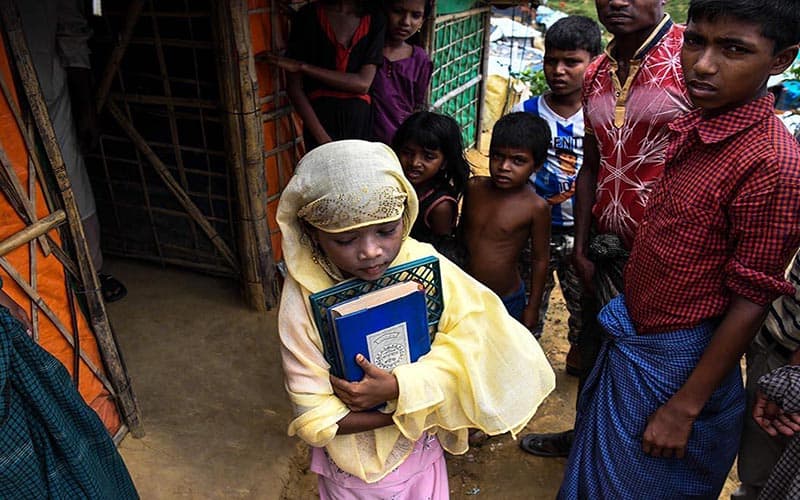Yangon: Nearly 100 Rohingya Muslims were forced back to Myanmar‘s Rakhine state after being detained at sea en route to Malaysia, police said Wednesday, stirring fears of a fresh refugee boat crisis.
Three vessels carrying fleeing Rohingya have now been seized and returned to Rakhine over the past two weeks, as the monsoon season gives way to more favourable, if still treacherous, sailing conditions.
All on board the third boat were being returned to camps around the capital Sittwe in the central part of the state, where more than 120,000 people have been confined since intercommunal violence in 2012.
A photo in local media showed the group huddled on the deck in the baking sun, a scene reminiscent of the boat crisis in 2015 that saw countless Rohingya abandoned by smugglers in the Andaman Sea after authorities shut down trafficking routes.
They were headed for Malaysia when stopped by navy officers on Sunday night off the southern town of Dawei, Police Major Min Lwin told AFP.
“They were all sent back to Sittwe on a navy boat last night,” he said, adding that the group, two thirds of whom were under the age of 18, would arrive on Thursday or Friday.
The plight of Rohingya Muslims languishing in the central part of the state has been overshadowed by last year’s mass exodus of more than 720,000 Rohingya from northern Rakhine.
Those refugees fled over the border into Bangladesh to escape a brutal military crackdown.
UN investigators want Myanmar’s top generals to be prosecuted for genocide over the crackdown, but Myanmar says it was defending itself against Rohingya militants.
Around 10 boats, carrying a total of several hundred people, have left the camps in central Rakhine since mid-October, said Arakan Project director Chris Lewa, whose group monitors abuses against the Rohingya.
“I’m worried about Bangladesh. The border guards say they won’t let people leave but if people do then the numbers would be much bigger,” she said.
Desperation in the refugee camps across the border is also growing.
A repatriation deal has stalled, with Rohingya refusing to go home until their safety and rights are secured.
The stateless minority are denied citizenship in Myanmar and face severe restrictions on movement as well as a lack of access to work, healthcare and schools in what Amnesty International says amounts to apartheid.
One camp leader told AFP under the condition of anonymity that they try to explain to people about the dangers of leaving by boat but many are simply too desperate to listen.
“We are losing hope,” he said. “Nothing has changed in the last six years.”
[source_without_link]Agence France-Presse[/source_without_link]

